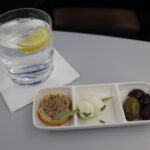Junk food’s allure is undeniable, but excessive consumption can overshadow healthier choices with foods high in fat, salt, or sugar. Our modern environment overflows with readily available and inexpensive snacks and beverages, often leading us to replace nutritious options like vegetables, fruits, whole grains, lean protein, and low-fat dairy with calorie-dense alternatives.
Our minds and bodies can become overwhelmed by foods that offer minimal nutritional value but excel in taste, aroma, texture, and visual appeal, captivating our senses. Here are six proven strategies to help you curb junk food cravings and embrace healthier eating habits:
1. Establish Regular Meal Times to Prevent Extreme Hunger
Allowing yourself to become overly hungry triggers your brain’s reward system, making you more susceptible to any food cues you encounter. Sticking to a consistent meal schedule can help regulate your appetite. Avoid fad diets that restrict food groups, and focus on incorporating plenty of fruits and vegetables into your daily diet.
2. Prioritize Water Consumption and Eliminate Sugary Beverages
Sugary drinks like soda, sports drinks, energy drinks, and sweetened teas are often linked to weight gain. One explanation is that liquid calories may not be processed by the brain in the same way as solid food. Studies suggest that individuals tend to eat only slightly less when consuming a glass of regular cola compared to a zero-calorie alternative.
3. Opt for Nutritious, Low-Calorie Snacks
Feeling hungry between meals is normal. Instead of reaching for junk food, try snacking on a piece of fresh fruit or veggie sticks with hummus. Identify lower-calorie foods that you enjoy and that are also low in fat, salt, and sugar. Satisfying your stomach and brain with nutritious options at meals and during snacks can help reduce cravings for unhealthy alternatives.
4. Identify and Manage Your Stress Triggers
Take the time to recognize the emotional cues that lead you to crave comfort foods. Instead of turning to junk food during stressful moments, try going for a walk, calling a friend, practicing meditation, or engaging in a distracting activity. Stressful situations can trigger food cravings, causing rapid spikes and drops in blood sugar, which can negatively impact your energy levels and cardiovascular health. Planning how you’ll respond to these triggers empowers you to choose healthier food and beverage alternatives. Prioritizing water and nutritious foods during stressful periods helps your body maintain balance and overall health.
5. Prioritize Adequate Sleep
Research indicates a clear link between sleep deprivation and increased food consumption. When individuals are restricted to only four hours of sleep per night for five consecutive days, they tend to eat more and gain weight. Similar studies have revealed that participants report increased hunger and cravings for high-carbohydrate (sugary) or high-fat foods when they are sleep-deprived. Aim for 7-8 hours of sleep each night. Insufficient sleep can lead to various negative consequences, including increased risk of injuries due to drowsiness, overeating and potential weight gain, reduced work productivity, and poor dietary choices due to irregular meal times, unhealthy snacking, and excessive caffeine consumption.
6. Be Aware of Marketing Tactics
The food industry employs sophisticated marketing strategies on television, the internet, and other media platforms to make junk food appealing. Recognizing the difficulty of resisting these high-calorie alternatives is the first step. Remember that our food environment often makes it challenging to consistently choose healthy foods and beverages.
Take incremental steps to avoid junk food and make more nutritious choices. By implementing these strategies, you can take control of your cravings and cultivate healthier eating habits.
